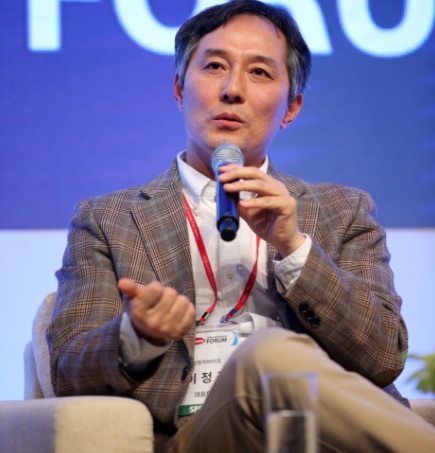Bridge Biotherapeutics announced on Tuesday that it will discontinue the development of BBT-176, a drug candidate for non-small cell lung cancer (NSCLC), and BBT-212, another candidate for fundus disease.
Instead, the company stated it would focus on BBT-877 and BBT-207, candidates for idiopathic pulmonary fibrosis and NSCLC, which have "greater market potential."

BBT-176, which has completed a phase 1a clinical trial in patients, is a fourth-generation EGFR inhibitor that targets triple mutations, including C797S, that exhibits resistance after treatment with third-generation EGFR inhibitors such as Tagrisso.
As third-generation EGFR inhibitors in lung cancer treatment have been approved as first-line treatments for NSCLC, BBT-207 shows the potential to address a broader spectrum of mutations, including the C797S-containing triple mutation.
Additionally, BBT-207 has shown significant antitumor activity against double and triple mutations, including C797S, in preclinical studies, as well as brain metastasis inhibition, which is important in the treatment of late-stage NSCLC.
“The candidate is currently being screened for enrollment in phase 1 clinical trials and we will focus on accelerating its development by gradually expanding the number of clinical trial sites in Korea and the U.S.,” said the company in a statement.
The company also explained its fundus disease drug candidate, BBT-212, has undergone efficacy validation since being in-licensed from Konkuk University but has been discontinued due to the company's strategy to focus on cancer and pulmonary fibrosis.
"We have decided to discontinue some projects in order to showcase faster R&D results by strategically allocating resources for efficient corporate management," said Bridge Biotherapeutics CEO Lee Jeong-kue. "We will continue to strive to secure business competitiveness through the selection and concentration of company-wide development capabilities."
Bridge Biotherapeutics also estimates that the internalization of clinical development functions will reduce costs by about 10 billion won (approximately $7.3 million) for the lung cancer project, and it is also expected to generate new cash flow through cooperation with a number of domestic companies in the bio industry.
Related articles
- Bridge Bio wins FDA nod for phase1/2 trial of NSCLC treatment
- 'Bridge Biotherapeutics committed to expanding cancer, fibrosis pipeline'
- Bridge Bio fails to prove ulcerative colitis drug’s efficacy in phase 2a trial
- Can open innovation, R&D tax support produce Korea’s next blockbuster drug?
- Handok submits global phase 2/3 IND plan for biliary tract cancer drug candidate
- Bridge Bio starts phase 1/2 clinical trial of EGFR-TKI for NSCLC
- FDA OKs Bridge Biotherapeutics' clinical trial of IPF drug candidate
- Bridge Biotherapeutics advised to keep developing IPF treatment 'BBT-877'

